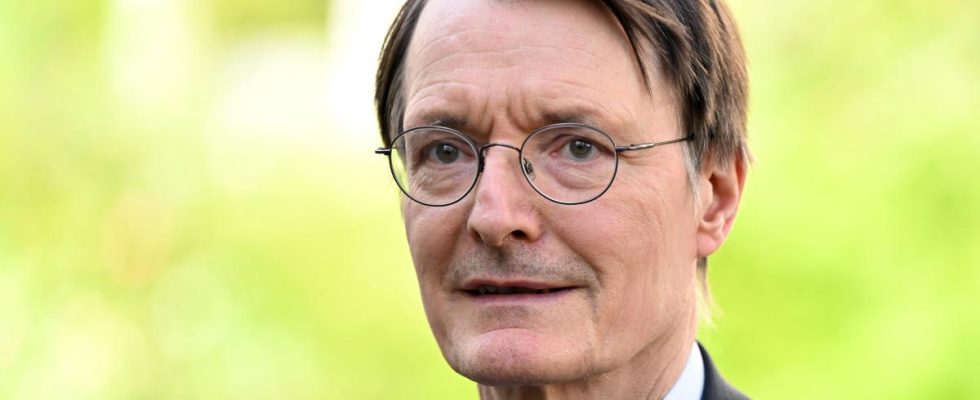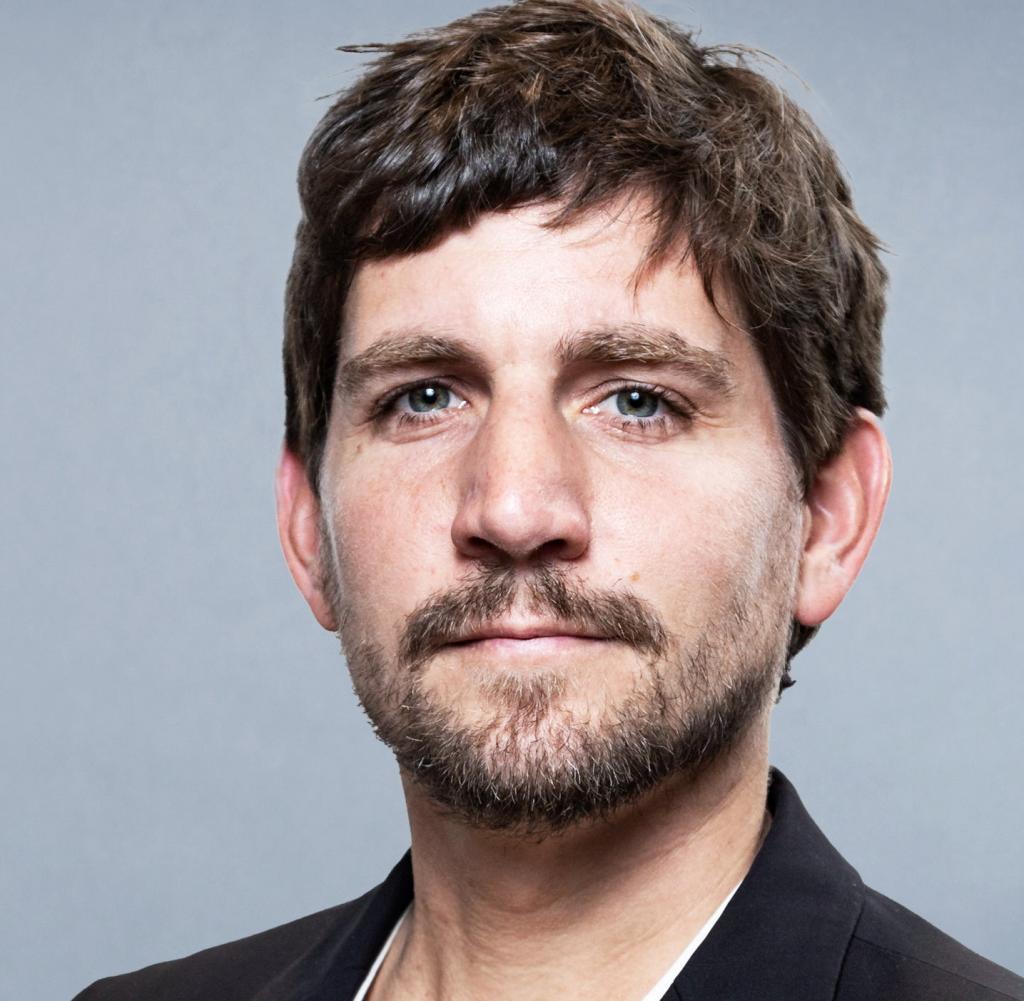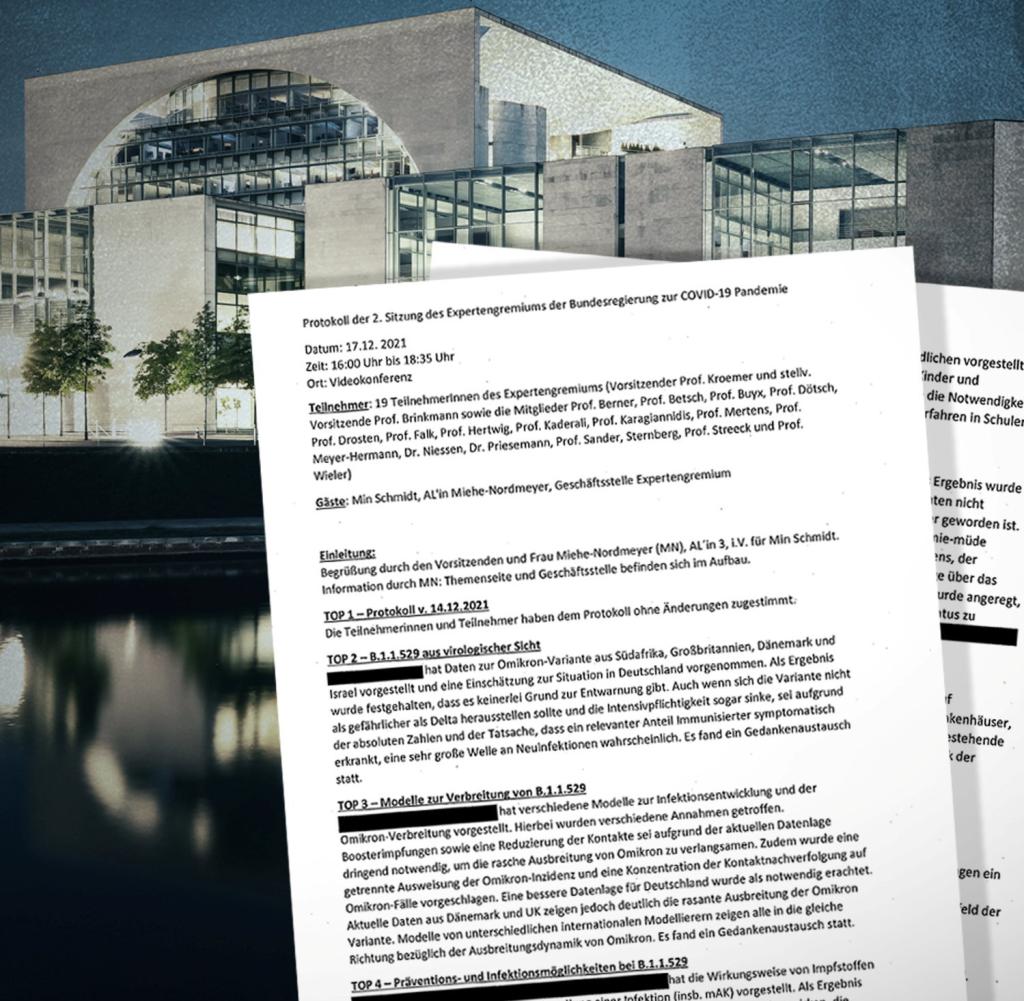RKI minutes published – Lauterbach rejects accusations of political influence
“So many things were simply negated. The hair of the experts stood on end.”
The measures to contain the corona pandemic were sometimes highly controversial. Minutes of discussions in the crisis team of a central health authority are now being made public. “The risk assessment was not based on data from scientists,” says virologist and epidemiologist Prof. Klaus Stöhr.
An online portal has received minutes from the RKI crisis team during the corona pandemic. Federal Health Minister Lauterbach counters the accusation of political influence on the institute. Meanwhile, FDP Vice President Kubicki criticizes the redactions in the minutes.
bFederal Minister of Health Karl Lauterbach (SPD) countered suspicions about external influence on a higher risk assessment by the Robert Koch Institute (RKI) on the Corona situation in March 2020. “The RKI worked independently of political instructions,” Lauterbach told journalists on Monday. The institute “did the right thing” back then.
The online magazine “Multipolar“had previously published redacted minutes of the RKI crisis team from January 2020 to April 2021. A protocol from March 16, 2020 states: “It should be scaled up this week. The risk assessment will be published as soon as (passage redacted) gives a signal.” On March 17, 2020, the RKI increased the risk assessment for the population from “moderate” to “high” and announced this at a press conference.
From the sentence in the protocol and the error in other documents regarding the upgrade, “Multipolar” deduced that the new assessment had been carried out on “instructions from an unnamed actor” and not on the basis of scientific criteria.
The “redacted employee” is an employee of the RKI, said Lauterbach. There were no political instructions to which the RKI responded at the time. Germany got through the pandemic “relatively well”. “This is also thanks to the achievements of the Robert Koch Institute.”
A spokeswoman for the Federal Ministry of Health had previously stated that the RKI had carried out a technical assessment of the situation, which should be seen in the context of the time. The World Health Organization (WHO) declared the pandemic five days earlier, on March 11, 2020. In Bergamo, Italy, 4,500 people died of Covid-19 in February/March, and several countries had also imposed entry bans shortly beforehand.
Kubicki and Streeck criticize redactions
Lauterbach defended the redactions in the minutes. You have to protect employees. He referred to possible attacks from “certain groups”.
According to its own statements, “Multipolar” enforced the release of the published minutes through legal steps as a result of a request under the Freedom of Information Act.
Hendrik Streeck, virologist and former member of the Corona Expert Council, criticizes the many redactions in the RKI protocols. “I’m very surprised that whole pages about vaccinations, for example, were blacked out,” he told the WELT news channel. “And I wonder what’s in there, why the public shouldn’t see it.” He doesn’t believe that there are “any conspiracy theories or big warnings” behind the redactions, but that doesn’t help build trust.
The deputy FDP chairman Wolfgang Kubicki demands full transparency from Lauterbach with regard to the protocols. “I therefore call on Karl Lauterbach to publish all the minutes of the RKI crisis team without redactions,” said the FDP politician to the dpa news agency.
“Sooner or later he will be forced, either judicially or politically, to do this anyway. In any case, as a parliamentarian, I will work to ensure that all the basis for decision-making at this time becomes public,” emphasized Kubicki. He directed serious accusations at the RKI and also at the former Federal Health Minister Jens Spahn (CDU). “It is becoming increasingly clear that the Robert Koch Institute for Health Policy, run by Jens Spahn and probably also Karl Lauterbach, served as a scientific façade.”
BSW and AfD call for a committee of inquiry
The Sahra Wagenknecht Alliance (BSW) is calling for comprehensive clarification. “A study commission is not enough. A committee of inquiry is necessary to shed light on the period with the greatest restrictions on fundamental rights in the history of the Federal Republic,” said Wagenknecht to the dpa. The population has a right to come to terms with it. “In particular, the closing of daycare centers and schools as well as the exclusion of unvaccinated people must be examined, also in order to draw conclusions for future pandemics.”
The health policy spokesman for the AfD parliamentary group, Martin Sichert, criticized: The RKI protocols showed “that the Corona measures were not based on scientific facts, but were politically planned”. He appeals to the other parliamentary groups: “Look at the minutes of the RKI crisis team and set up a Corona investigation committee together with us. The public has a right to know what really happened back then.”
On Monday, Lauterbach rejected the establishment of a study commission to deal with the corona pandemic. He referred to the “Health and Resilience” expert council recently set up in the Federal Chancellery, which includes virologists, epidemiologists and sociologists, among others. “I think it’s right that the topic is dealt with scientifically in such a committee,” said Lauterbach. A political debate “like the one we have been having for years” is not productive. The minister criticized “a small group of politicians, but also people who perhaps also represent radical ideas in other areas” and who used the corona pandemic “to make politics against the state”.



